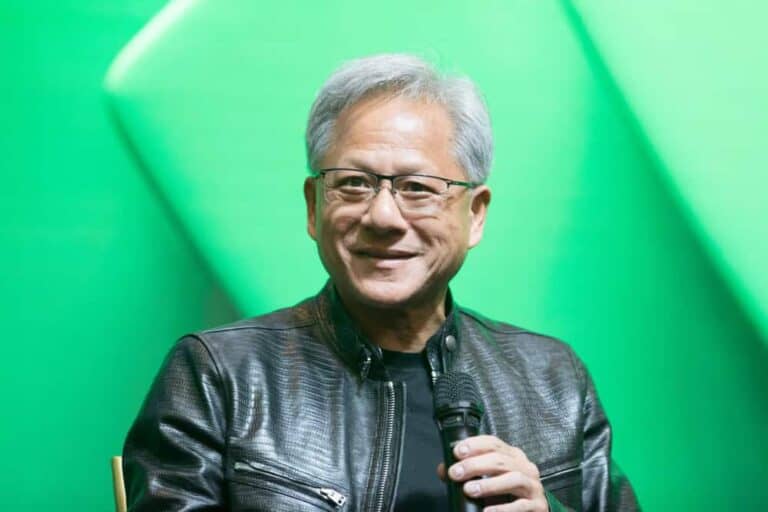According to sources, Nvidia and AMD must hand over 15 percent of their revenue from the sale of AI chips to China to the US government. This is in exchange for export licenses. The White House and the companies involved have not confirmed the report.
This is according to The New York Times, based on conversations with three people familiar with the arrangement. According to them, the US government negotiated the deal directly with Nvidia and AMD, which amounts to a structural transfer of income in exchange for permission to supply the Chinese market. In practice, this makes the federal government a kind of business partner to the chipmakers for their Chinese activities.
The agreement comes a month after Nvidia was officially granted permission to export a modified version of its H20 AI chip to China. Although the Trump administration publicly gave the green light at the time, the necessary licenses were not granted. Sources report that Nvidia CEO Jensen Huang (photo) spoke with President Trump at the White House last week and agreed to the payment. Two days later, the Department of Commerce began issuing export licenses.
AMD is also covered by the agreement. The company produces the MI300 AI chip, sales of which to China were banned by the Trump administration in April. Under the new agreement, the company will be allowed to resume deliveries under certain conditions, provided it also pays 15 percent of the proceeds.
Special agreement
It is rare for export licenses to be linked to a structural revenue transfer. According to analysts, this fits in with Trump’s broader strategy to increase the US government’s influence on international business deals. Earlier this year, for example, the takeover of U.S. Steel by Japan’s Nippon Steel was only approved after the US was granted a golden share in the company. This gave America veto rights over crucial decisions.
Trump is also using economic pressure to bring semiconductor production back to the US. Last week, he announced that companies will have to pay a 100 percent import tariff on chips produced outside the US unless they invest in American factories.
According to Bernstein Research, the scheme could generate more than $2 billion for the US Treasury this year. Nvidia was reportedly set to sell more than $15 billion worth of H20 chips in China, and AMD around $800 million.
The White House, the Department of Commerce, and AMD declined to comment. Nvidia said through spokesman Ken Brown that it complies with all US export rules. He said that the H20 chip has not been shipped to China for months and expressed hope that the export rules will be designed in such a way that US companies can continue to compete in China and worldwide.
